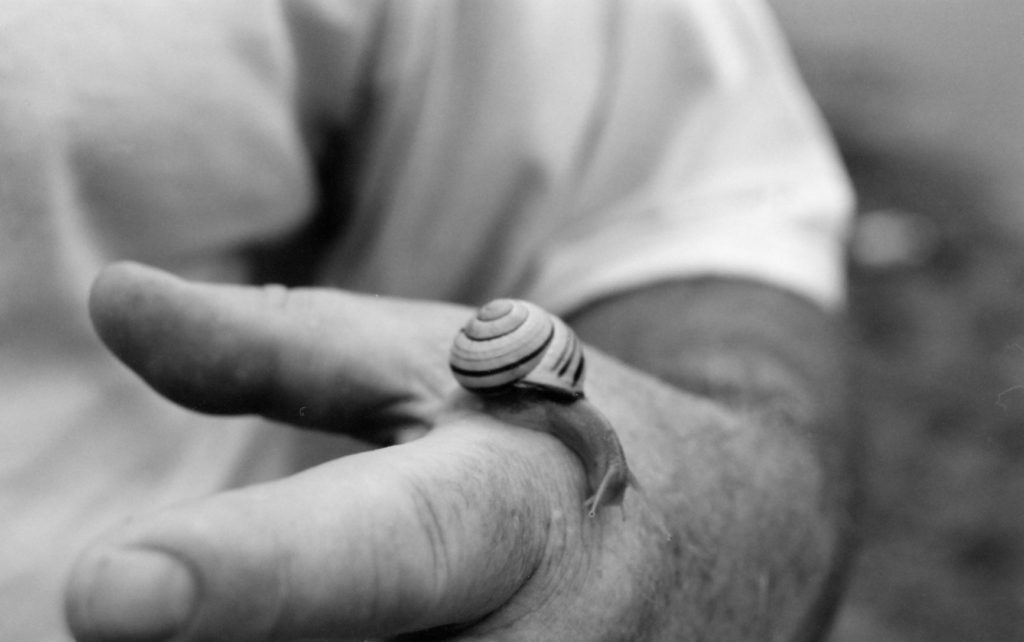In a post last year, I talked about why I’m writing about my father as much as I am. He was looming so large in my thoughts that I couldn’t not write about him.
At the time, I mostly just wanted to knock my experience with him down into bite-sized chunks that I could digest more easily. It’s also possible that I wanted to knock the man himself down a few notches, prove to him that he wasn’t the great man he thought he was.
The first motivation is fair. The second is not, and needs to be addressed.

I’ve mentioned elsewhere that I have my father’s permission to write anything about him that I need to. At the time of that conversation, and during much of the telling of tales up to this point, I’ve only had access to one side of the story: mine. But imagine a man holding a snail out to his grown daughter, wanting to show her something wonderful. Imagine him holding as still as possible while she focuses her camera lens. Does that man not deserve to have his side of the story heard as well?
Last autumn, during a stop-motion class with animator Cristal Buemi, I began to learn the power of letting my father speak for himself in such a way that I could have a dialogue with him. I had already done this a little bit in my piece Schrödinger’s Dad, but this was something new. I unearthed a recording of an interview I had done with my dad in 2003, and started pulling out clips that spoke to the constant thread that wound through our life together: art. The resulting film, Art Therapy, shook me more than I could have imagined.
It was during the process of making the film that I also rediscovered a trove of his notes and artwork that I’d put away after he left town in 2003. One October afternoon I sat down and read through a stack of vignettes that covered incidents in his life from about the early seventies to the early 2000’s. I discovered a man who was sad, lonely, defiant, failed, despairing, and yet still, somehow, hopeful. If I’m resisting exile, then so was he.
Bill Bayley deserves my anger. He does. But he doesn’t deserve to have only my anger. He deserves my compassion and understanding, too.
Reading through his notes, and looking at his art, I think compassion and understanding are all he ever really wanted. All any of us really wants. I couldn’t give him those things while he was alive. But maybe if I give him enough compassion now, I will finally be able to find some for myself.
Previous